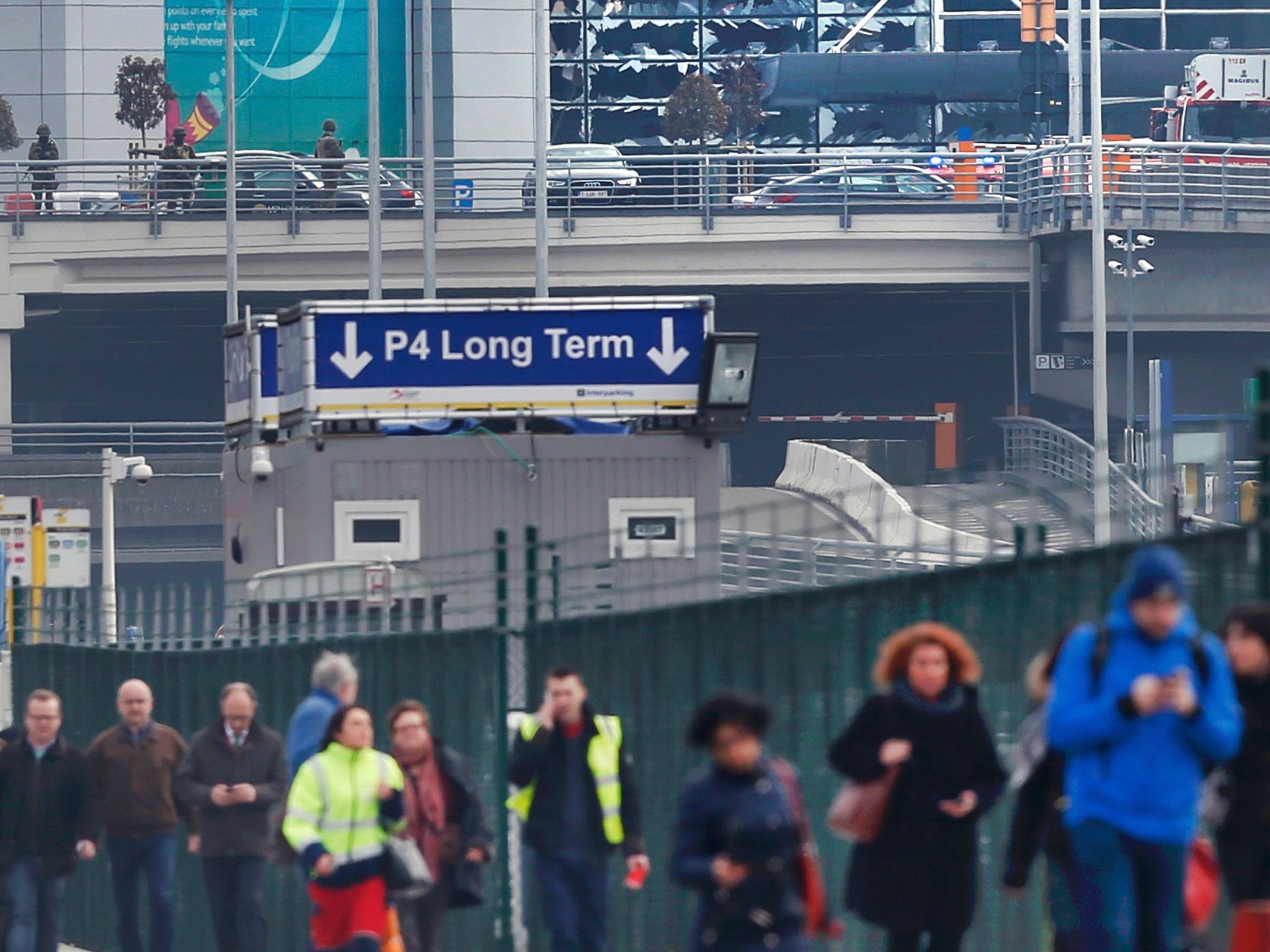Brussels attacks: What do the Belgium terror attacks mean for travellers?
Simon Calder on the possible consequences of the attacks in Brussels

Your support helps us to tell the story
From reproductive rights to climate change to Big Tech, The Independent is on the ground when the story is developing. Whether it's investigating the financials of Elon Musk's pro-Trump PAC or producing our latest documentary, 'The A Word', which shines a light on the American women fighting for reproductive rights, we know how important it is to parse out the facts from the messaging.
At such a critical moment in US history, we need reporters on the ground. Your donation allows us to keep sending journalists to speak to both sides of the story.
The Independent is trusted by Americans across the entire political spectrum. And unlike many other quality news outlets, we choose not to lock Americans out of our reporting and analysis with paywalls. We believe quality journalism should be available to everyone, paid for by those who can afford it.
Your support makes all the difference.Q How could the attackers get access to a supposedly secure area of Brussels airport?
Because, sadly, there is nothing secure about the “landside” areas of western European airports - Arrivals or Departures before the security checkpoint. All the current focus is on preventing terrorists gaining access to aircraft with weapons. No routine checks are made on people who simply turn up at the check-in or arrivals zones. Airports are naturally places full of people with luggage. So to bring guns or explosives into an airport is all too easy. We have seen previous attacks at Moscow and, much earlier, at Rome and Vienna airports, but nothing so close to home.
Q What can be done by the government or aviation industry?
The Department for Transport could impose on airports the requirement to screen passengers and their possessions before allowing them anywhere near the terminal. Similarly, meeters and greeters might be searched. However the structure and scale of UK airports makes this very difficult. Heathrow and Gatwick are, respectively, the world’s busiest two-runway and single-runway airports, and both have a restricted “footprint” with little room for introducing another layer of security.
In the short term there are likely to be some random checks on passengers and other airport users. Long term, more radical solutions will need to be found.
Q What kind of solutions?
The first will look at traffic flows of travellers within an airport. For example, the night before the Brussels attack I was flying out of Munich airport. Because of an apparent shortage of security staff, the waiting time in the landside area was around 20 minutes - and for most of that time I was in a snaking queue of around 60 people. Such a scrum of passengers constitutes a prospective terrorist target, and therefore airports might be told to increase resources in order to reduce the queues as much as possible. This, however, will increase costs - which ultimately will be passed on to the passenger.
Q Any ideas other than throwing money at the problem?
The aviation security industry should pick up some lessons from the theme-park business, and even big cultural attractions, about how to manage queuing. One smart idea that has been finding favour in Canada is to offer a fast-track not only to people who are prepared to pay - but to passengers who are prepared to go through security at a specific time. For example, for my flight at 8.55pm last night, I would have welcomed the chance to commit to turning up at, say, between 7.55pm and 8pm, so long as I could breeze through security. Such an arrangement helps airports to allocate resources to their security searches in the optimum way, and drastically reducing the amount of time wasted in queues. I would not be at all surprised if that concept takes root more widely around the world.
Q Meanwhile what can passengers - or meeters and greeters - do to enhance their own security?
Minimise the time spent landside - even if that means paying extra for fast-track security (not an option at many airports, including Munich). Once airside there is far less likelihood of villains with access to weapons. Arriving passengers or those meeting them should not linger in the arrivals area, but instead move expeditiously to their onward transport - perhaps meeting their loved ones in the car park. It’s not romantic, but it is rational.
Join our commenting forum
Join thought-provoking conversations, follow other Independent readers and see their replies
114Comments